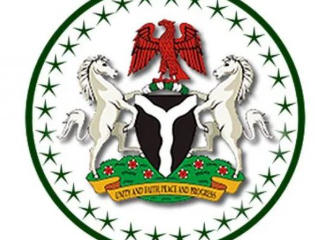The Federal Government says it cannot increase emoluments or downsize workers without productivity measurement.
The Minister of Labour and Employment, Sen Chris Ngige, said this on Tuesday in Abuja while declaring open the third National Productivity Summit in Abuja, organised by the National Productivity Centre (NPC).
The theme of the two-day Summit is: “Mobilising and Managing Resources for Higher Productivity, Sustainable Growth and Development’’.
The News Agency of Nigeria reports that the two-day summit is designed to create a national discourse, where productivity practitioners and intellectuals can brainstorm on pressing productivity-related issues.
The specific objective of the summit is to examine the level of productivity in the economy and challenges facing key sectors of the Nigerian Economy and propagate the culture of productivity.
Ngige said that Nigeria could not make progress without productivity measurement in the various sectors of the national economy, including the public service, banking, business and agriculture.
The minister, who advocated for the propagation of the culture of productivity, also stressed the need for Nigeria to measure its productivity as a country.
According to him, productivity as the efficient and effective management of available resources, remains a key factor that enables societies to generate wealth and sustain development.
“We must propagate the culture of productivity. Some people are suggesting that we should downsize because a lot of people are at work. You cannot do that without measuring productivity.
“Same goes with emoluments. Some people work in ministries while others work in parastatals like NNPC and FIRS.
“They are not equally paid. The huge disparity in wages does not give cheers. How we can bridge the gap in wages is important,” he said.
Ngige noted that the disparity in wages caused rebellions by labour unions, culminating in incessant industrial disputes.
He described the theme of the summit, “Managing Resources for Higher Productivity, Sustainable Growth and Development,” as very apt, as Nigeria is in dire straits because it did not diversify its economy to enhance productivity.
“Nigeria is blessed with enormous human and natural resources and therefore, has the potential to be a major economic power.
“Yet, having an abundance of these resources does not guarantee development, except they are properly harnessed, mobilized and maximised.
“The aim is not only to secure new and additional resources but also to make better use of existing ones.
“Mobilising domestic resources for productive investment is a long-standing challenge for most developing countries like ours. Weak demand, rising debt and volatile capital flows have left many economies.
“However, there are compelling reasons why more emphasis should be given to domestic resource mobilisation. It is vital to increase productivity, employment and revenue generation, wealth creation and poverty reduction,” he said.
Ngige noted that through efficient and effective mobilisation and management of resources, countries accelerated their economic growth by raising and spending their own funds for public goods and essential services like schools, hospitals, clean water, electricity and roads.
He added that for a country to attain sustainable development, “it is critical to identify, mobilise and manage these resource,” he said.
The Permanent Secretary, Ministry of Labour and Employment, Ms Kachollom Daju, urged the participants to seek for areas to be more productive to the country, and work hard towards a better Nigeria and future.
Also speaking, the Director-General, National Productivity Centre, Dr Kashim Akor, called for the collective effort of critical stakeholders in the productivity movement.
Akor also called on all Nigerians to fashion out specific solutions to the challenges militating against productivity improvement, growth and development in the country.
He noted that in the effort to promote productivity, the Centre had engaged Nigerians at various levels through productivity researches and surveys, productivity promotion and advocacy, productivity coaching and mentoring, award of excellence, among other instruments.
He therefore, called on participants and resource persons to put in their best for the achievement of the main objective of the Summit.
“I encourage us all to have the mindset and mentality of continuous progress so that collectively we can raise a productive Nigeria for the betterment of the future generation,’’ he said.
The Chairman, National Productivity Summit Planning Committee, Dr Gbenga Bamiduro, stated that the event was designed to bring experts and stakeholders together for robust conversations on the mobilization and management of resources in the country for higher productivity.

 Football7 days ago
Football7 days ago
 Entertainment6 days ago
Entertainment6 days ago
 Football1 week ago
Football1 week ago
 Business5 days ago
Business5 days ago
 Football1 week ago
Football1 week ago
 Football6 days ago
Football6 days ago
 Business6 days ago
Business6 days ago
 Crime7 days ago
Crime7 days ago













